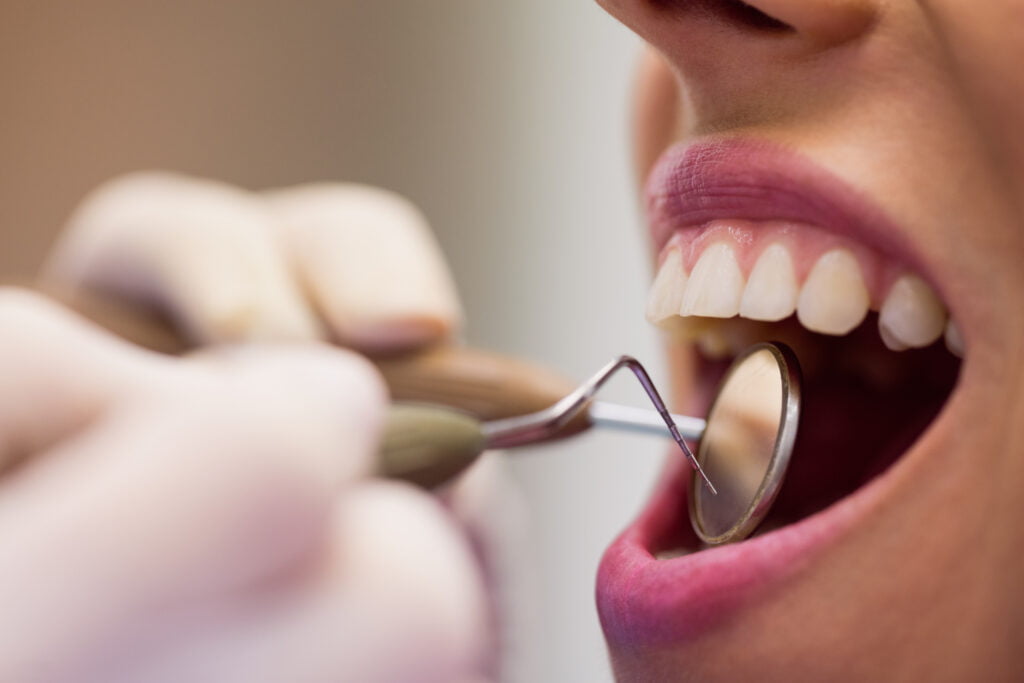
The oral microbiome refers to the community of microorganisms, including bacteria, viruses, fungi, and other microbes, that inhabit the mouth. It plays a crucial role in oral health and can influence overall well-being.
The oral microbiome has far-reaching effects on the body. It can impact cardiovascular health, diabetes, respiratory infections, autoimmune diseases, preterm birth, and even Alzheimer’s disease. The balance of microbes in the mouth can influence various aspects of health beyond oral hygiene.
Diet plays a significant role in shaping the oral microbiome, particularly the production of gases like methane and hydrogen. Certain carbohydrates can promote the growth of gas-producing bacteria in the mouth, affecting both oral and gut health. Additionally, mouthwash containing antimicrobial agents can impact the balance of beneficial and harmful bacteria in the oral microbiome.
Mouthwash containing antimicrobial agents like chlorhexidine or cetylpyridinium chloride can disrupt the oral microbiome by killing both harmful and beneficial bacteria. However, mouthwashes with essential oils or probiotics can be gentler on the oral microbiome and may offer benefits for maintaining a healthy balance of bacteria.
Oral care products with probiotics are designed to introduce beneficial bacteria into the oral microbiome. They may help reduce the risk of dental caries, improve gum health, freshen breath, and promote overall oral health by supporting a healthy balance of bacteria in the mouth.
What is the oral microbiome?
The oral microbiome is the community of microorganisms that live in the mouth, including bacteria, viruses, fungi, and other microbes. However, when the balance of the microbiome is disrupted, it can lead to oral diseases such as tooth decay, gum disease, and bad breath.
Some of the most common bacteria found in the oral microbiome include Streptococcus mutans, linked with tooth decay, and Porphyromonas gingivalis, associated with gum disease.
While modern dentistry typically focuses on reducing the load of bad bacteria in the mouth, new research suggests that maintaining healthy bacteria is just as important.
Did you know, your oral microbiome affects your whole body?
Here are a few examples:
- Cardiovascular disease: There is evidence to suggest that an imbalanced oral microbiome, with increased levels of harmful bacteria, may be linked to an increased risk of cardiovascular disease. The bacteria in the mouth can enter the bloodstream and contribute to the formation of plaque in the arteries, which can lead to heart attacks and strokes.
- Diabetes: Research has shown that individuals with diabetes are more likely to have an imbalanced oral microbiome, with increased levels of harmful bacteria and reduced levels of beneficial bacteria.
- Respiratory infections: The oral microbiome can also impact respiratory health. Harmful bacteria in the mouth can be aspirated into the lungs, leading to infections such as pneumonia.
- Autoimmune diseases: There is growing evidence to suggest that an imbalanced oral microbiome may be linked to the development of autoimmune diseases, such as rheumatoid arthritis and lupus. It is thought that harmful bacteria in the mouth may trigger an immune response that leads to inflammation and tissue damage in other parts of the body.
- Preterm birth and low birth weight: Research has shown that an imbalanced oral microbiome, with increased levels of harmful bacteria, may be linked to an increased risk of preterm birth and low birth weight. The bacteria in the mouth can enter the bloodstream and trigger an inflammatory response that can lead to premature labor.
- Alzheimer’s disease: Some studies have suggested a link between an imbalanced oral microbiome and Alzheimer’s disease. It is thought that harmful bacteria in the mouth may enter the brain and contribute to the formation of beta-amyloid plaques, which are a hallmark of the disease.
Factors that can impact the oral microbiome:
Diet
Diet plays a significant role in shaping the oral microbiome, and can impact the production of gases like methane and hydrogen in the mouth. These gases are produced as a byproduct of bacterial metabolism and can affect both oral and gut health.
Certain types of carbohydrates are known to promote the growth of gas-producing bacteria in the mouth, which can lead to increased production of methane and hydrogen. These gases can contribute to bad breath, and in some cases, can be a sign of underlying gut health issues.
In addition, the types of bacteria present in the oral microbiome can affect the composition of the gut microbiome, and vice versa. This is because bacteria can travel between the mouth and gut through the digestive system.
Research suggests that an imbalance in the oral microbiome can contribute to an imbalance in the gut microbiome, which can lead to a variety of health issues, including inflammatory bowel disease (IBD), obesity, and metabolic disorders.
Mouthwash
Some mouthwashes contain antimicrobial agents that can impact the oral microbiome. While these agents are designed to kill harmful bacteria that contribute to bad breath and other oral health issues, they can also affect the beneficial bacteria that are important for maintaining a healthy microbiome.
The most common antimicrobial agents found in mouthwash include:
- Chlorhexidine: This is a broad-spectrum antimicrobial agent that is effective against a wide range of bacteria. It is commonly used in prescription mouthwash products.
- Cetylpyridinium chloride (CPC): This is a milder antimicrobial agent that is often used in over-the-counter mouthwash products. It is effective against some types of bacteria but may not be as effective as chlorhexidine.
- Essential oils: Some mouthwash products contain essential oils, such as tea tree oil, thyme oil, or peppermint oil, which have antimicrobial properties. These oils are generally milder than chlorhexidine or CPC and may be less likely to disrupt the oral microbiome.
When choosing a mouthwash, it’s important to read the label carefully to determine which antimicrobial agents are included. If you’re concerned about the impact of mouthwash on your oral microbiome, you may want to consider using a product that contains probiotics, which can help to restore and maintain a healthy balance of bacteria in the mouth.
Potential benefits of using oral care products with probiotics:
Oral care products with probiotics are designed to introduce beneficial bacteria into the oral microbiome.
- Reduced risk of dental caries: Probiotics may help to reduce the risk of dental caries (tooth decay) by competing with harmful bacteria for resources and reducing the acidity of the oral environment.
- Improved gum health: Probiotics have been shown to help reduce inflammation and improve the health of the gums, which can help prevent periodontal disease (gum disease).
- Fresh breath: Some probiotic strains have been shown to reduce the production of volatile sulfur compounds (VSCs) in the mouth, which can cause bad breath.
- Better overall oral health: By helping to maintain a healthy balance of bacteria in the mouth, probiotics may help improve overall oral health and reduce the risk of oral diseases.
If you’re interested in using oral care products with probiotics, check out our range of biome boosting dental care.
